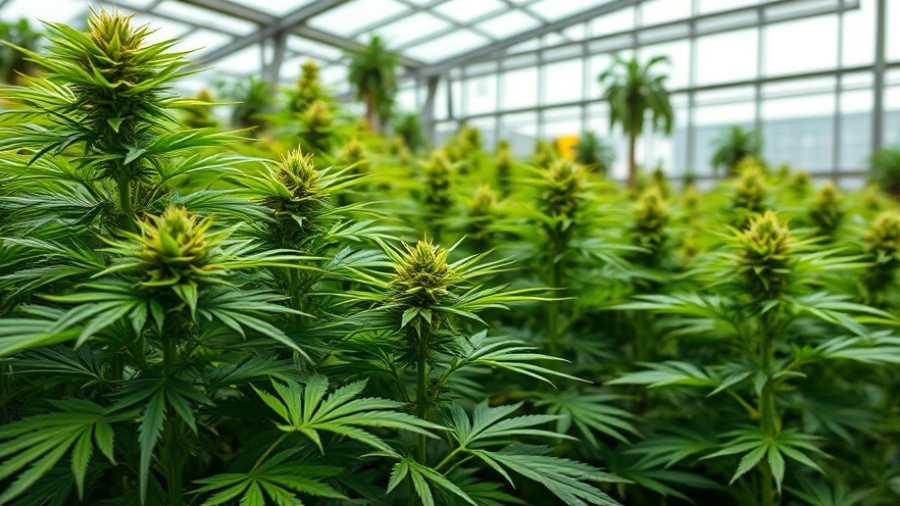
The New Age of Cannabis Farming: Innovation Rooted in Soil
At EDUN Family Farm in Parachute, Colorado, a groundbreaking approach to cannabis cultivation is taking shape under the guidance of co-founder Michelle Brinkerhoff. With a firm belief in prioritizing quality over conventional methods, EDUN is pushing the envelope of how cannabis can be grown sustainably. "We’re not growing like everybody else," Brinkerhoff declares. This commitment isn't just a marketing strategy; it's a fundamental philosophy that emphasizes the medicinal potential of cannabis while reimagining the agricultural practices that support it.
Soil as the Superhero: The Science Behind Living Soil
The heart of EDUN's operations lies in its soil— a living, breathing ecosystem. Brinkerhoff employs innovative techniques such as bokashi composting, which transforms organic waste from local breweries and grocery stores into nutrient-rich compost. Unlike traditional methods, this anaerobic fermentation process allows for a quicker breakdown of organic matter, allowing for a richer end product that serves the plants better. This practice aligns with a broader movement referred to as the 'Living Soil Revolution' that emphasizes the crucial role of microbes and organic matter in soil health.
Where Technology Meets Tradition: The Balance of Farming Techniques
EDUN doesn't just rely on traditional farming techniques; it blends them with modern technology for cutting-edge cultivation. Drawing inspiration from Korean Natural Farming (KNF) and Jadam principles, Brinkerhoff and her team harness biological intelligence instead of industrial efficiency through chemicals. This approach reflects a growing trend within the cannabis industry, where holistic practices overshadow sterile, high-tech farming methods.
Beyond Organic: The Case for Regenerative Agriculture
Brinkerhoff takes a strong stance against the USDA's organic label, describing it as insufficient in denoting true sustainability. Many approved organic chemicals still compromise the concept of clean cultivation, leading her to adopt a 'beyond organic' mindset. Instead, she champions regenerative agriculture, which focuses on biodiversity, carbon cycling, and the health of the ecosystem, offering a more robust solution to the challenges faced by contemporary farming.
The Wider Implications: Healing the Earth Through Cannabis
The implications of EDUN's practices extend beyond just cannabis cultivation; they reflect a larger environmental consciousness. By adopting regenerative methods, the farm demonstrates how the cannabis industry can mitigate its environmental impact and contribute positively to climate change initiatives. With cannabis now being recognized for its medicinal properties, the industry's move toward sustainable practices not only yields healthier crops but also supports a healthier planet.
Conclusion: A Call to Conscious Farming
EDUN Family Farm is not merely cultivating cannabis; they are nurturing a philosophy that could redefine the agricultural landscape. As the cannabis industry matures, embracing regenerative practices brings forth an opportunity for cultivators to lead in sustainability while providing high-quality medicinal products. This is a powerful reminder that how we grow reflects our commitment to both our communities and the planet. With technological advancements and a commitment to natural balances in farming systems, the future of cannabis cultivation looks bright.
 Add Row
Add Row  Add
Add 




Write A Comment